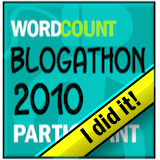Continue reading "Against the Grain," my article in the March 2009 issue of Financial Planning magazine (free registration may be required for access).
Also, here's some information that didn't make it into the article. It's the list of funds used by the advisors whom I interviewed.
Absolute Opportunities
Absolute Strategies
Arbitrage
Diamond Hill Long-Short
Direxion Commodity Trends
Gateway
Highbridge Statistical Market Neutral
Hussman Strategic Growth
Merger
Nakoma Absolute Return
PIMCO CommodityRealReturn Strategy
Robeco Boston Partners Long/Short Equity
Rydex Managed Futures Strategy
_________________Absolute Strategies
Arbitrage
Diamond Hill Long-Short
Direxion Commodity Trends
Gateway
Highbridge Statistical Market Neutral
Hussman Strategic Growth
Merger
Nakoma Absolute Return
PIMCO CommodityRealReturn Strategy
Robeco Boston Partners Long/Short Equity
Rydex Managed Futures Strategy
Susan B. Weiner, CFA
Check out my website at www.InvestmentWriting.com or sign up for my free monthly e-newsletter.
Copyright 2009 by Susan B. Weiner All rights reserved


